iPhone 5: The iPhone just got taller
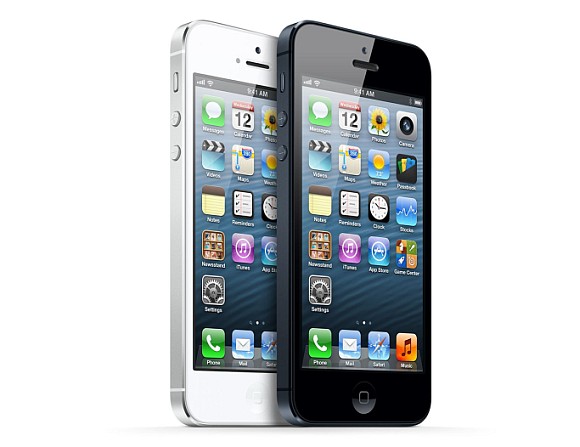
The much anticipated iPhone 5 is finally revealed, which marks the iPhone’s 6th generation since its introduction in 2007. When the iPhone 4S was launched last year, many were expecting an all new model rather than a facelift of the iPhone 4. The new iPhone 5 now comes in a all new body while maintaining the familiar apperance. Overall it matches the earlier rumours and leaked shots that have been circulating before the launch.
At first glance, it looks very much like the previous iPhone 4/4S but it is noticeably taller. The iPhone 5 marks the first departure away of its standard 3.5″ screen and has finally moved up to 4.0″ screen size.
Display
Typically most would expect a larger screen to have a bigger width, however iPhone has taken a different approach. They have maintained the same display width (640 pixels) and the exact same width dimensions of 58.6mm but instead have increased the height of the phone to push an extra 176 pixels taller onto the display. As a result, the iPhone 5 still maintains its Retina Display pixel density of 326ppi at a resolution of 1136×640. This is close to a cinematic 16:9 display aspect ratio.
Dimensions
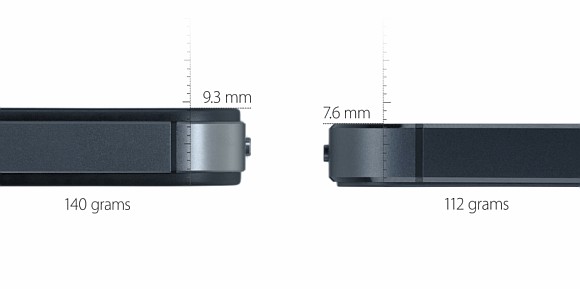
Despite a larger screen, the iPhone 5 is thinner than ever at 7.6mm and weighs only 112g. That’s 18% thinner and 20% lighter than the model it replaces. During the announcement, Phil Schiller, Apple’s SVP for Marketing had mentioned that the iPhone 5 as the world’s thinnest smart phone but this isn’t entirely true as there other thinner smart phones out there breaking below the 7mm barrier. Nevertheless, it is still one of the lightest and thinnest out there compared to the current high-end smart phones in the market.
Hardware
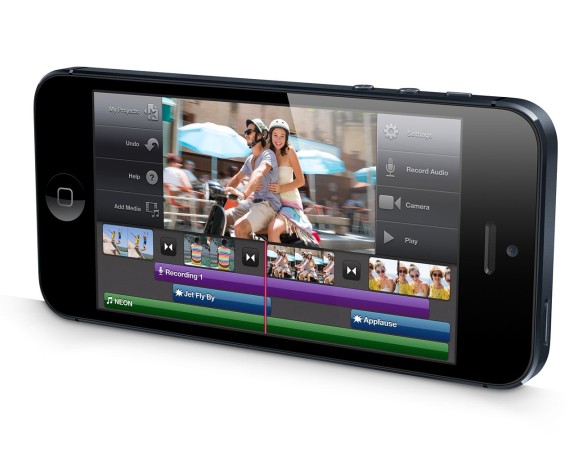
The design of the iPhone 5 may not be ground breaking but Apple pride themselves with newer manufacturing process on the new model. The aluminium frame is machine polished while the bevel edge is cut with precision crystalline diamonds. If that’s not enough, Apple claims to use a sophisticated matching process through high powered imaging to determine the best match of the cut inlays and aluminium housing with micron level tolerance. The headphone jack is now relocated to the bottom of the phone which is supposedly the most practical placement when your phone is your pants pocket.
In terms of power, the iPhone 5 uses an all new dual-core A6 chip running at 1GHz which is based on the latest ARM Cortex A15. This Apple claims to offer double performance than the previous A5 chip that’s running on the iPhone 4S. The RAM on the iPhone 5 has also doubled as well to 1GB.
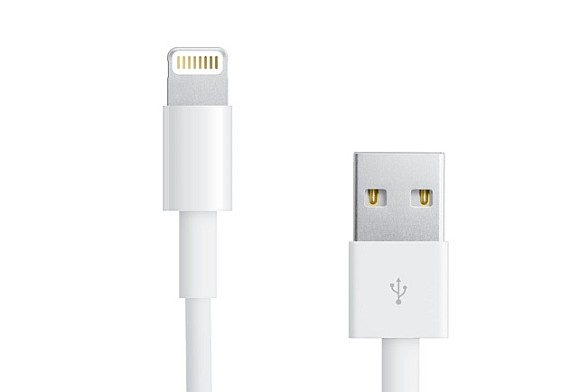
Along with the new thin design comes with loads of size reduction. The iPhone 5 now uses an even smaller nano-SIM which leaves just the chip visible without much plastic frame around it. Apple has also do away with its standard 30-pin adapter and has introduced a new lightning connector that’s slimmer and fits whichever side you connect with.
Camera
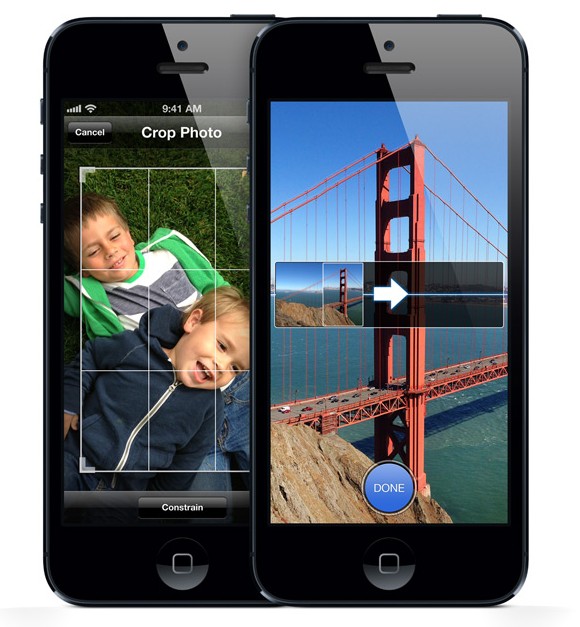
In terms of camera, the iPhone 5 still retains the similar 8MP iSight camera but now it is enhanced with sapphire crystal as the lens cover which is less prone to scratches. In terms of software, the camera app now comes with panorama mode which is taken in a single sweep. Over at the front, the centre placed camera has been bumped to 1.2MP for HD quality Facetime.
New EarPods
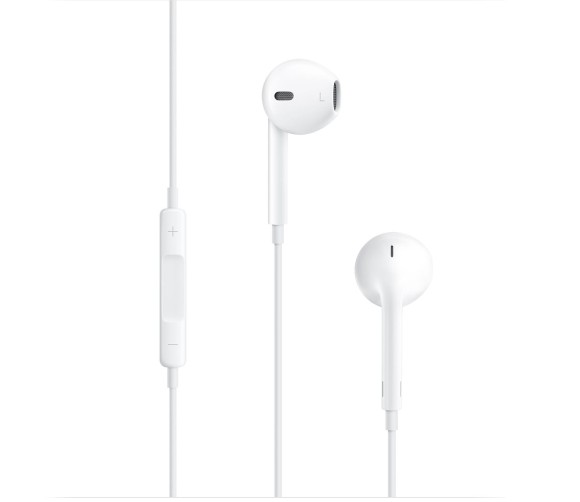
For audio, Apple has introduced a new headphone called EarPods. After extensive research and testing with various ears, they have developed a new design that fits more people comfortably than the standard headphone design. This was a result of identifying the common shape after studying 3D models of different ear types. All for the sake of optimal audio quality with comfort fit in mind.
Models & Variants
In terms of number of models, the iPhone 5 doesn’t come in just 2 but 3 variations – One CDMA and Two GSM versions. The difference lies on the LTE support where each model supports different bands below:
GSM – Model A1428The full list of telcos supported is available here.
4 (AWS)
17 (700b MHz)
CDMA – Model A1429
1 (2100 MHz)
3 (1800 MHz)
5 (850 MHz)
13 (700c MHz)
25 (1900 MHz)
GSM – Model A1429
1 (2100 MHz)
3 (1800 MHz)
5 (850 MHz)
Availability
Just like the iPhone 4S, there will be storage options of 16GB, 32GB and 64GB. In terms of availability, pre-orders start tomorrow and it will be first available in the US, Australia, Canada, France, Germany, Hong Kong, Japan, Singapore and Britian this coming 21st September. On 28th September, 22 more countries will be getting it including Austria, Belgium, Czech Republic, Denmark, Estonia, Finland, Hungary, Ireland, Italy, Liechtenstein, Lithuania, Luxembourg, Netherlands, New Zealand, Norway, Poland, Portugal, Slovakia, Slovenia, Spain, Sweden and Switzerland.
No dates on Malaysian availability yet but it is likely to be here before Christmas. The iPhone 4S which was announced in October 2011 took slightly more than 2 months to reach our shores in December. Based on past launches, Apple is gradually closing the gap for international availability.
New iPods
Together with the iPhone 5, Apple has also launched its latest iPod Touch which also features a 4″ Retina display in a much thinner 6.1mm body. Instead of the usual black and white, the new iPod Touch comes in 5 colours and it even comes with a strap called the iPod touch loop. The iPod Nano has also grown up again and this time it goes back to the classic candy bar form factor with a taller 2.5″ screen. Both new iPods are also using the latest Lighting connector and comes bundled with its new EarPods.
Conclusion
Overall the iPhone 5 is the much needed refresh of the iPhone but it somehow lack the punch that we would have expected. While the manufacturing process has improved, we wished there’s more to it than just looking like a slimmer and taller version of its predecessor. The extra processing power is welcomed but iOS 6 offers just minor tweaks with enhancements that’s considered standard on other mobile platforms. If anything, they are seen as playing catch up instead of breaking new grounds when the earlier iPhone was first introduced.
The absence of NFC was quite a disappointment as well. According to Phil, Apple doesn’t see NFC as a solution to a problem and they believe Passbook can already achieve what consumers needed. Although there are NFC solutions for the iPhone, having an integrated NFC would play a part to accelerate adoption.
For existing iPhone users that are comfortable with and have substantial committed content and app investments on iOS, the iPhone 5 is a great step up especially those on iPhone 4 and below. For those that are new to smart phones, the iPhone 5 would have a tougher time as the market is filled with more compelling options at competitive pricing.


Comments
Post a Comment